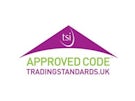In this week’s lettings article, we look at how tenants should approach repairs and maintenance issues in their property.
What to do when something in your rental needs fixing
Problems in the home are a nuisance. Like when you’ve got a leaky tap and the drip drip drip drives you to distraction, or when your fridge packs up and food goes to waste. When things go wrong, it’s understandable you want them fixed ASAP. But what if you’re a tenant? What’s the best way to get an issue resolved?
Repairs and maintenance in a rental property are usually a landlord’s responsibility. As a tenant, you’ve got to wait until they sort it out, so what’s the best way to communicate with your landlord? How can you get them to fix things in a timely manner?
Who manages the property?
It may seem like an obvious question, but many tenants don’t know who to contact when things break down or need repairing. When you first move in, it’s good to get these details and keep them in a safe place.
If an agent is managing a property, contact them to report any issues, and if the landlord manages the property, speak to them directly.
Assess the level of urgency
There’s a difference between a loss of water pressure in the shower and a broken-down boiler. The latter will affect heating and hot water so should be classed as urgent. Contact your landlord as soon as you’re aware of the problem so they can start the process for repairs.
For less urgent matters, such as a loose curtain pole or noisy dishwasher, you could report it at your next inspection.
Provide full information
Even if you’ve got the best landlord in the world, they may not know the make and model of all the appliances within your property. So, whether you’re sending an email or typing out a text message, give them the full information. Include the make and model number of the appliance (so they can order parts or let their maintenance person know), the problem that’s occurred, and how and when it happened. The same applies to non-appliance-related repairs. The more information you provide, the quicker an issue can be dealt with.
Call or email?
If the issue doesn’t require urgent attention, it’s best to email/text your landlord in the first instance. If you don’t hear back within a couple of days, follow up your message with a call.
In some cases, you might be happy to deal with a problem that arises yourself. However, it’s best to check your tenancy agreement to see if you should do this.
If you’re looking to rent a property or you’re a landlord with a vacant residence, give our team at Belvoir Stoke-on-Trent, Leek and Biddulph a call.









